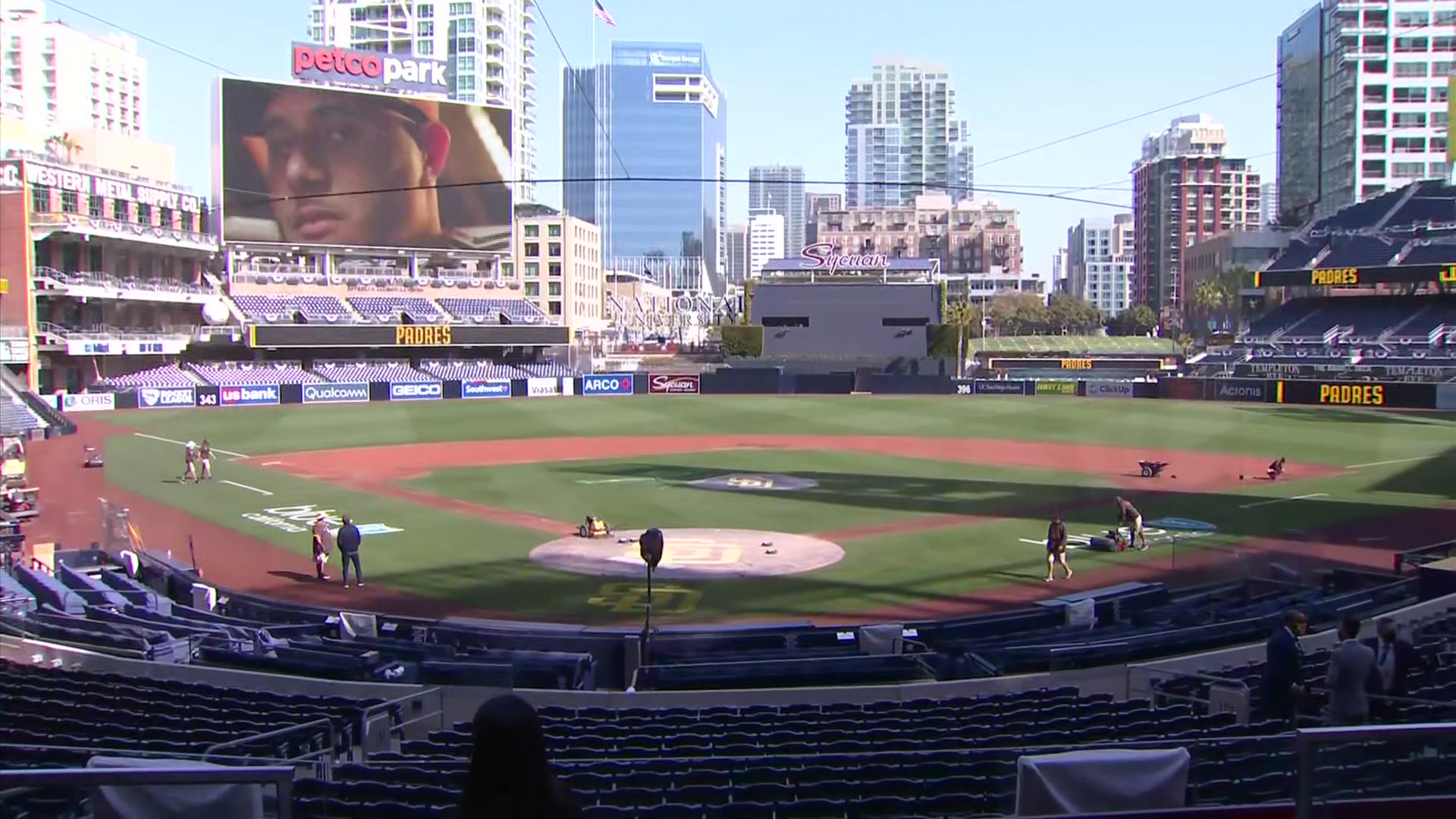San Diego Mayor Todd Gloria was faced with an existing budget shortfall amplified by a devastating pandemic that wiped out the city's economy when his office created his proposed budget for Fiscal Year 2022.
On Thursday, Mayor Gloria detailed how he plans to utilize the $4.6 billion budget to jumpstart San Diego's economic recovery, address homelessness, make changes to policing and address climate change.
The city of San Diego is facing an $124 million shortfall amid the pandemic, according to 2020 estimates. But about $300 million of funding from the federal government will help balance next year's budget.
According to San Diego's Interim Chief Operating Officer Jay Goldstone, the relief from the U.S. will be split over the next three years, with $141.3 million being used this year.
Get San Diego local news, weather forecasts, sports and lifestyle stories to your inbox. Sign up for NBC San Diego newsletters.
The budget will include about $10 million in loans for non-profits and small businesses devastated by the pandemic, particularly in the hardest-hit communities of San Diego, Gloria said.
Juan Pablo Sanchez, who received a grant from San Diego amid the pandemic for his family-owned business of more than 30 years -- Super Cocina in City Heights -- said the grants not only keep businesses afloat but help boost morale.
Sign up for our Breaking news newsletter to get the most urgent news stories in your inbox.
"My parents and my family have struggled through this pandemic but it's through this kind of assistance that we've been able to survive," Sanchez said thanking Mayor Gloria and his administration for their efforts to focus on restoring local businesses.
Gloria also proposed investing $750,000 in programs that support small businesses and another $750,0000 in career development programs for local youth, both of which are intended to strengthen San Diego's workforce. To pay for these programs, the city reorganized the city's executive team to save $780,000 annually.
The budget also focuses on enhancing current core city services, like road repair.
The mayor said that he would utilize a different approach from his predecessor, former Mayor Kevin Faulconer, by doing away with "simply calculating how many miles of cul-de-sacs we improve to making a more equitable and lasting approach to major thoroughfares."
Coronavirus in San Diego County
$10 million is proposed to "create sexy streets in the historically underserved communities, communities that frankly have not seen their fair share of repairs over the many many years," Gloria said.
The question Gloria gets asked the most, the mayor said, is how he plans to fix the city's homelessness issue.
"We’re spending more than we ever have on this problem and yet most San Diegans feel like it’s not getting better, it’s getting worse," Gloria said.
Gloria also criticized past administrations for not holding service providers accountable; he said that would change.
Gloria said he plans to reform the city's approach to homelessness by investing more into housing-first resources and into outreach teams, not police, who are equipped to interact with the homeless community.
After last year's budget increased the San Diego Police Department's funds by $27 million, Gloria intends to reduce the department's overtime budget to save about $4 million annually.
The San Diego Police Officers Association took issue with the cuts that came in the wake of last year's protest against police brutality and calls to defund the police.
"Reimagining SDPD requires an investment in the department. To improve training, to move back a community policing model, to get us out of being the primary responders to homelessness, to improve response times, to continue keeping our communities safe, and to keep us competitive with other departments so we can recruit and retain top candidates requires more resources," a statement from the association read, in part.
Police reform advocacy groups, on the other hand, thought it doesn't go far enough.
"While a good foundation [for police reform in San Diego], we want to echo Councilmember Monica Montgomery Steppe and ensure everything we do addresses the root of the problem of racial inequities in policing. San Diego needs a rigorous, formal system of accountability for the San Diego Police Department and its police officers, and we ask Mayor Gloria to commit to holding the Department and its officers accountable when they fail to follow his administration's policies," a statement from co-chairs Andrea St. Julian and Maresa Martin Talbert said.
The $4 million saved will instead be used for community and youth-focused programs as well as to the city's independent police oversight commission, the mayor said.
The city will also save about $7 million by re-evaluating the San Diego public library schedule and shifting needs to focus on digital endeavors. Funds will instead be spent to increase technology access.
Another $5 million will be added to the new climate equity fund and resources will be spent to enhance the city's Climate Action Plan. A first-ever Mobility Action Plan addressing ways to enhance non-vehicle transpiration will also be created.
"I’m proud to introduce this budget today," Gloria said. "Amid years of the city sustaining a structural deficit, this budget puts us on a path to fix that."
Projected revenue increases from property and sales taxes will help round out the budget, but the biggest wildcard, according to Goldstone, will be the income from the city's Transit Occupancy Tax, which relies on visitors coming into San Diego for big events or conferences. And, it seems that for the majority of the year, only small events will be allowed.
"We’re projecting a slow growth in that, Goldstone said. "We hope we are wrong but that’s going to drive a lot of future decisions.”
The revenue from the TOT tax is projected to be about $100 million short of pre-pandemic levels.
Budget Committee Chair, San Diego City Councilmember Chris Cate said town halls will be held for San Diegans to give their feedback on the proposed budget. The budget process begins on May 5 with several budget hearings that San Diegans can also attend virtually.
The final budget will be adopted in June for the fiscal year that runs from July 1, 2021 to June 30, 2022.




